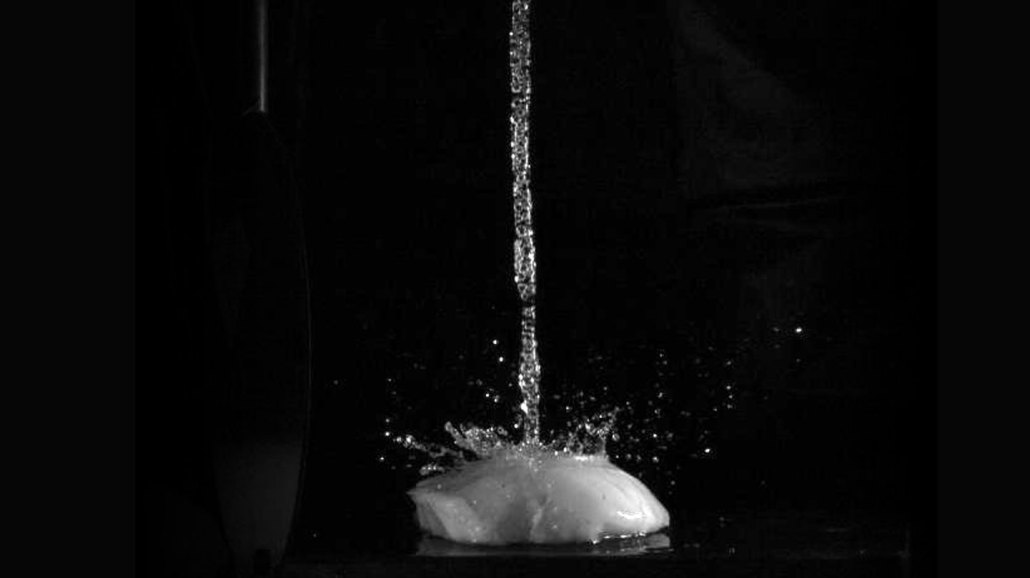How to wash chicken in the kitchen more safely, according to physics
Health experts don’t advise the practice because it can spread dangerous germs

Water splashes from a piece of raw chicken in experiments to discover how washing poultry affects the way germs spread in kitchens.
Caitlin Carmody







